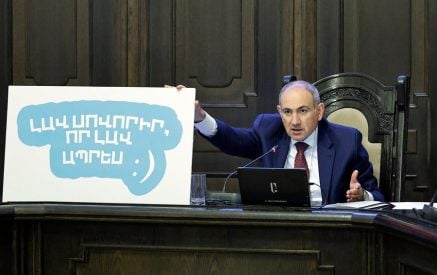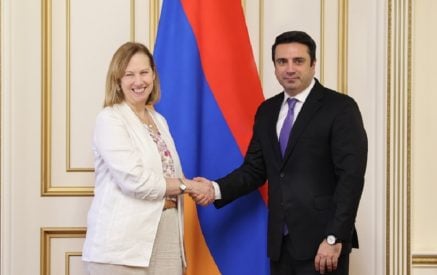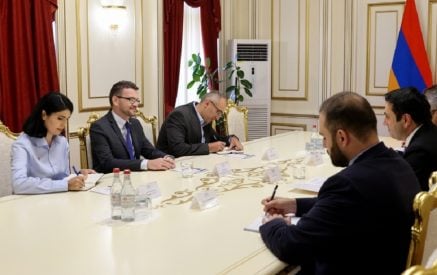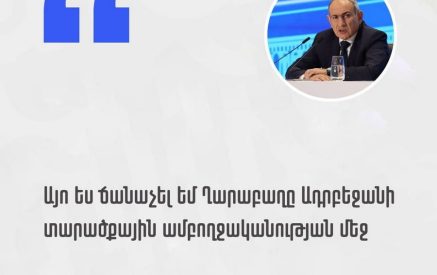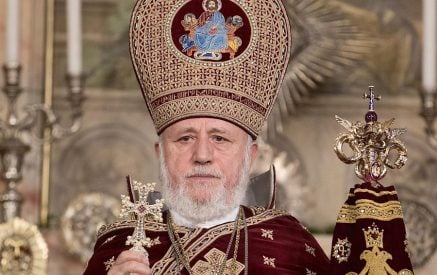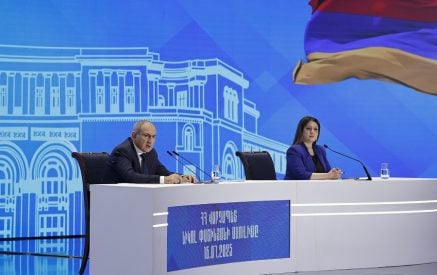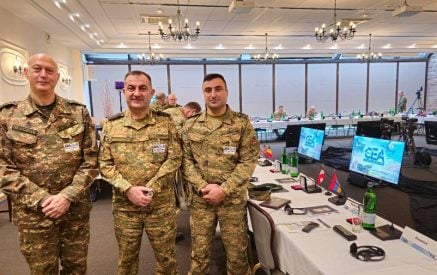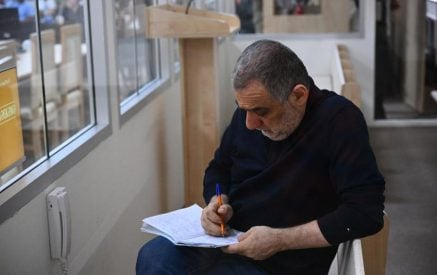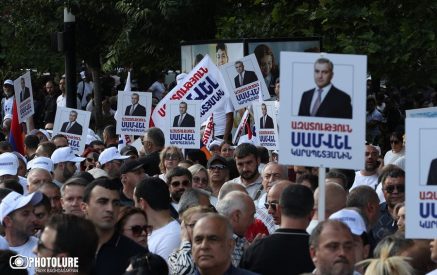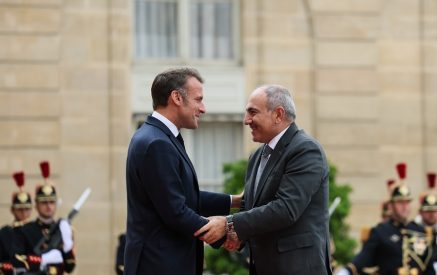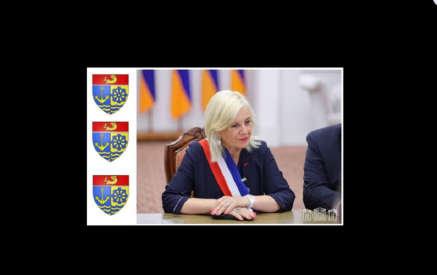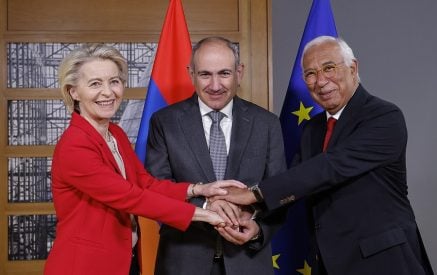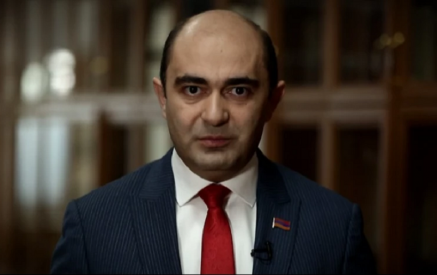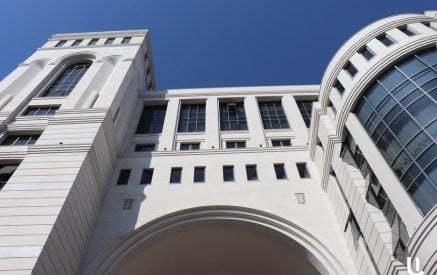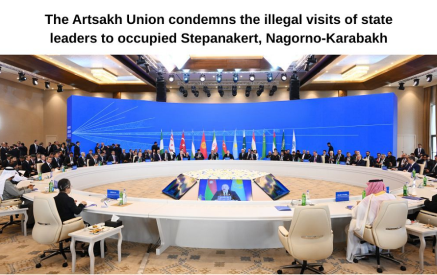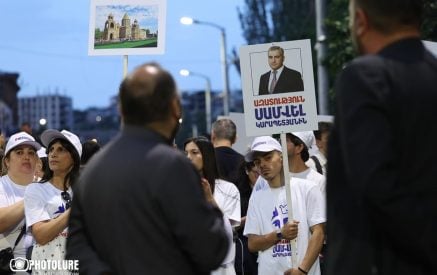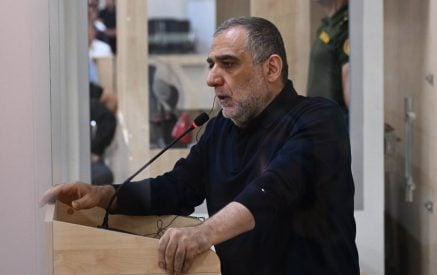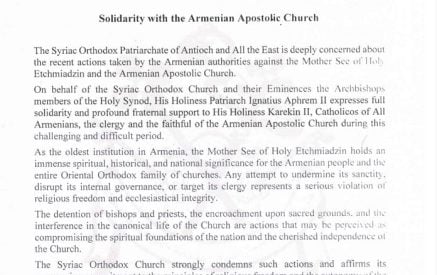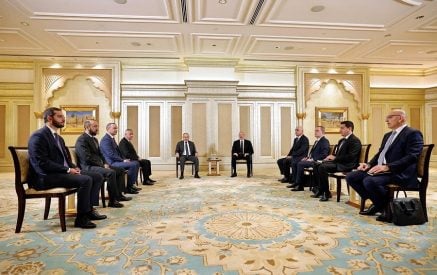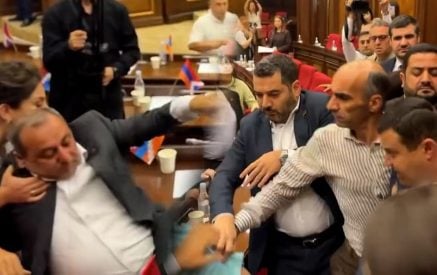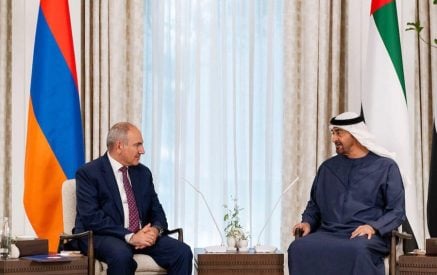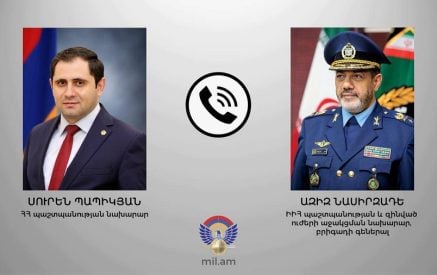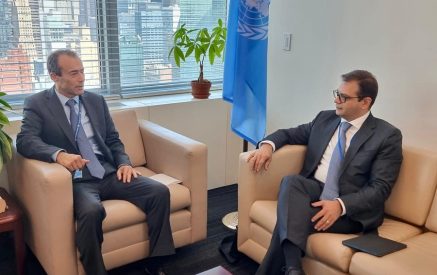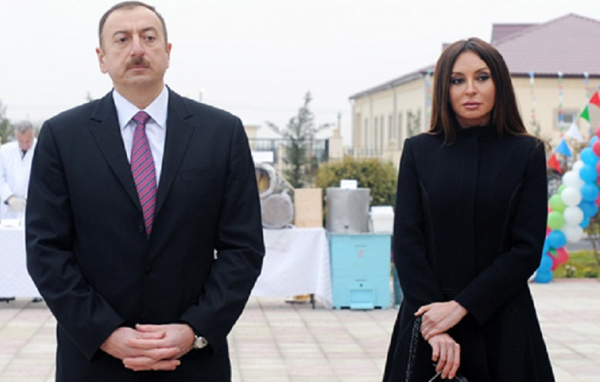On the background of discontent over the U.S. and the EU, “hunting” of those engaged in “spying in favor of Armenia” has been enraged in Baku
An interesting situation has emerged in recent days in Azerbaijan. Junior Aliyev’s Administration, with surely proceeding procedures, is preparing a fertile ground for launching a new phase.
Recently, former U.S. Ambassador Richard Kauzlarich expressed serious concern over the political situation in Azerbaijan regarding the new fact on persecution of journalists and political activists. “I am dealing with the United States and Azerbaijan relations since 1992, and I’ve never seen a worse situation than what is currently taking place in Azerbaijan. Baku is criticizing the OSCE Minsk Group Co-Chair James Warlick, and accusing the Congress staff of spying… The administration is afraid of not Russia or Iran, but its own citizens. They even go for a move of banning the hotels to host the NGO events criticizing the regime.”
And while people from Washington assure that the United States supports civilian diplomacy, informal, democratic diplomacy and human relations, the processes of building trust and mutual understanding between the peoples of Armenia and Azerbaijan (two days ago, the OSCE Minsk Group American Co-Chair James Warlick wrote on his Twitter page), official Baku through the mouth of the Head of Foreign Relations Department of Aliyev’s Administration Novruz Mammadov stated, “For over 15 years, the EU has recognized the territorial integrity of Azerbaijan, but lately it refuses to admit it. How can we understand it? How is it turned out that the leaders of the superpowers, including U.S. President Barack Obama, expressed their opinion on the issue of Ukraine, repeatedly demanded to respect the international laws, and began taking action? Regarding the Nagorno Karabakh conflict, then none of them at least once has used the phrase of “this issue should be resolved within the framework of international law”. Why? Why do they display such a dual approach in this matter?” On the background of discontent over the U.S. and the EU, “hunting” of those engaged in “spying in favor of Armenia” has been enraged. The attention of Azerbaijan law enforcement is focused on the Azeri journalists and civil society representatives, who had visited Armenia over the years, and have participated in international conferences, they are the sporadic figures who have dared to give interviews to the Armenian mass media and openly criticized the government of their country. Almost two weeks ago, the prominent commentator of Azerbaijani “Zerkalo” newspaper Rauf Mirkadirov was deported from Turkey to Azerbaijan and is charged under Article 274 of the Criminal Code of Azerbaijan for treason and espionage, for which the punishment is from 10 years to life imprisonment. Mirkadirov was Zerkalo’s correspondent in Turkey, he was criticizing Erdoğan government and the Azerbaijani authorities, as well as Russia’s politics. “Bringing accusations against Rauf Mirkadirov is an obvious evidence of licentiousness of oppression of the authoritarian regime and people’s diplomacy, and is a complete ban of any communication with Armenia’s civil society,” noted the “Institute for Peace and Democracy” non-governmental organization in Azerbaijan, and emphasized that the journalist is an active participant of Armenian-Azerbaijani different projects, and has visited Armenia with the staff of the same organization. “Bringing charges against Mirkadirov for espionage and treason nullifies the further visits of Azerbaijani civil activists to Armenia, and development of people’s democracy and civil society in Azerbaijan”, said recently the Director of the Institute for Peace and Democracy Leyla Yunus. Yesterday, as conveyed by contact.az, Mirkadirov’s lawyer had noted that Mirkadirov was accusing Russia’s special services for his detention. Mirkadirov considers that he was detained for critical publications about Russia.
Read also
A few days later after Mirkadirov’s arrest, on April 28, the Yunus spouses, prominent Azerbaijani human rights defender, the Director of the Institute for Peace and Democracy Leyla Yunus and historian and conflictologist Arif Yunus, were detained at the Baku Heydar Aliyev International Airport. After a thorough hours-long search of personal items, Arif and Leyla Yunus were taken to their apartment, where the Prosecutor’s office staff and the police officers tried to conduct a search in the house owned by Yunus family without any judicial decision. Later, the police officers took L. Yunus to the Prosecutor General’s Office for interrogation, which was conducted by the same investigator, who was managing the investigation of journalist Rauf Mirkadirov being accused of “spying in favor of Armenia”. With this respect, L. Yunus has said, “Recently, we came up with a joint statement with Laura Baghdasaryan, in which we stated that a big operation is prepared in Azerbaijan, which is aimed at identifying a large group of “spies”. All of this enables the authorities to introduce us as a spy family, a family that had organized a spy gang.” Yesterday, the Azerbaijani political analyst Zardusht Alizadeh stated that the Azerbaijani Constitution and other laws do not prohibit public diplomacy, and that she is also an active participant of public diplomacy in the events organized since 1989. Already as of April 28, videos appeared on the Internet, in which L. Yunus was telling about the inhuman treatment by the Azerbaijani law enforcement, how the detaining police even banned her to go to the toilet, and when finally they allowed her to go to the toilet, one police officer entered the toilet with her. About 9 hours of interrogation L. Yunus eventually was allowed to leave the Attorney General’s office building. L. Yunus believes that the recent events in the country are aimed at silencing sporadic human rights defenders left in the country. In fact, yesterday, the Russian “Nezavisimaya Gazeta” had touched upon the topic of “spying” held in Azerbaijan with quite remarkable and specific emphasis, noting that to L. Yunus “the attitude is not definitely as to a part of Azerbaijan’s population she is perceived as criticizing the current government, and from time to time, she is compiling lists of political prisoners, which typically include terrorists, separatists, grafters, and even the traitors.” On the same day, in Baku, another fact emerged: the burned corpse of the editor-in-chief of Mizan Terezi newspaper was found. Shocking footages appeared on the Internet, which depicts how the rescuers are bringing out the burnt corpse of the newspaper editor from underneath the ruins. According to preliminary information, Soltanov was burned, then buried. Editor-in-chief’s murder was associated with the fact that a few days ago, one of coworkers of the newspaper had accused Soltanov of raping her, but the investigation did not confirm this fact.
To argue that there is such powerful opposition in Azerbaijan, and a critical mass that can be a threat to Aliyev’s government, of course, would be an exaggeration, therefore, to this respect, the connection today between the fear and atmosphere of horror created in Azerbaijan would not be right. As to what is Aliyev’s actual purpose, what problem he solves, perhaps, it will be seen more clearly over the time. At the moment, the only available fact is that the public diplomacy has appeared in the target of Aliyev’s government, the Azerbaijanis communicating with Armenians in the international conferences and the programs funded by Western foundations.
Emma GABRIELYAN




